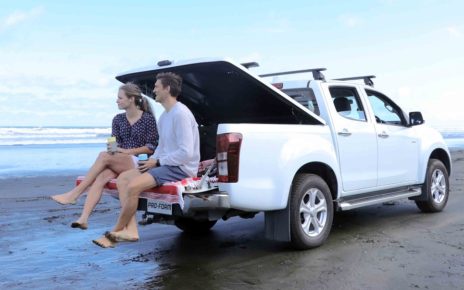EV adoption is expected to rise even though they currently account for only approximately 2% of the global auto market. Additionally, some states currently encourage the use of EVs more than others, thus retailers of convenience stores with locations in those states should be ready.
Currently, c-store merchants are having a lot of discussions over EV charging. The conversion to electric vehicles presents challenges to existing c-store gasoline retailers because of several financial and practical concerns when deciding whether to implement electric vehicle charging stations on-site at convenience stores.
Nevertheless, EV charging connections at convenience stores are also likely to become common practice despite these economic uncertainties as more and more electric vehicles are manufactured and sold globally.
Electric vehicles deliver better acceleration, are energy-efficient, ecologically benign, and operate smoothly, according to our country’s Department of Energy. In contrast to traditional vehicles, they have a reduced driving range too and a much longer recharge period.
More electric vehicles these days are being driven, which increases the demand for convenient charging stations as consumers consider these issues. Convenience businesses have a chance because of this.
In light of this, you might check to see if the use of your electric vehicles has increased in your neighborhood. If that is the case, installing Electrical Vehicle charging stations in the stores could be beneficial because it would drive customers in need of charging to you.
The average lifespan of a car today is estimated to be between 12 and 15 years, on the higher side, and when compared to the percentage of all-electric cars expected to be sold within this year (1.98%) and likely almost 2% the following year, the change will not be as significant as reported in the media and in announcements from automakers.
Electrification will undoubtedly continue and most likely over time impose negative pressure on the convenience store industry, even if we think it will happen more slowly than touted.
Ultimately, hybrids will make the most sense as a transitional mode of transportation over the long run, and conventional fuel-powered mobility is expected to continue in the future. That doesn’t imply, though, that c-store owners shouldn’t start planning how to convert their firm.
According to industry experts, the widespread adoption of EVs won’t happen anytime soon, but major c-store chains are already adding EV charging stations into their stores, particularly in places like California where EVs are more prevalent.
Summary
EVs are still regarded by the general public as a very niche product, despite the fact that their number is unquestionably increasing in the US. 1 million registered electric vehicles were on the road in the US in 2018.
However, predictions state that by 2030, just in California, there will be almost 4 million EVs. These predictions are encouraging, but they are simply speculative forecasts that might not actually materialize.
Because of this, many convenience stores, especially independent ones that may be already finding it difficult to compete financially with larger rivals, continue to exhibit hesitation to commit to any expenditure of installing Electric Vehicle chargers and also retail plans for EVs.





